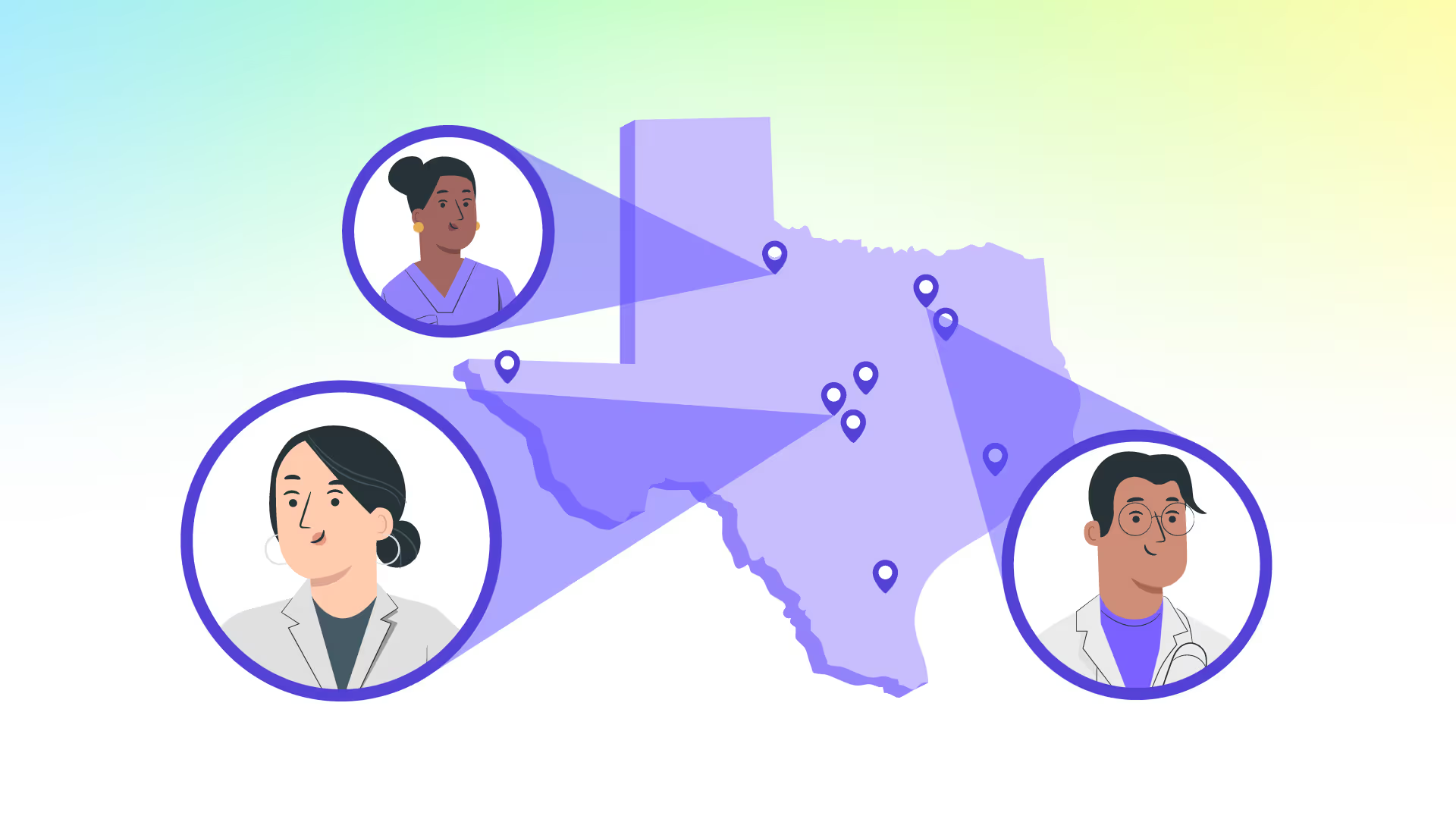Drexel University’s nurse practitioner programs follow a clinical placement approach that emphasizes student engagement within established university guidelines. Students work toward identifying appropriate clinical sites and preceptors, while the University provides oversight through review and approval to ensure placements meet program and professional standards. Because the process involves coordination and documentation, early planning is encouraged to support timely completion of required clinical hours.
Disclaimer: NPHub is an independent, private service that helps students find vetted preceptors, handle documentation, and stay on track for graduation and licensure. NPHub is not affiliated with or endorsed by Drexel University. This article is intended to share general, informational guidance based on our experience helping NP students from hundreds of NP programs secure clinical placements, along with publicly available information. If you are a student at Drexel University, NPHub can still support you in finding preceptors.
TL;DR - Drexel University Clinical Rotations
- Drexel University’s NP clinical rotations follow a structured placement process that includes university guidelines and approval, with students participating in identifying appropriate clinical sites and preceptors.
- Clinical site availability can vary by specialty and location, so early planning helps support timely completion of required clinical hours.
- Like many NP programs nationwide, students may encounter a competitive preceptor landscape across all tracks.
- Familiarity with Drexel’s clinical approval process and maintaining flexibility with options can help keep clinical courses on schedule.
- After using university resources, some students choose to create a free NPHub account to view current preceptor availability in family practice, adult-gerontology, pediatrics, women’s health, and psychiatric–mental health.
Starting Your Clinical Journey at Drexel University
There comes a moment in Drexel University’s graduate nursing programs when everything starts to speed up at the same time.
You are balancing synchronous online lectures, completing assignments, preparing for clinical components, and keeping your life running outside of school. When the start of your clinical hours gets closer, the pressure builds fast, and many students feel caught between excitement and real worry about securing a site on time.
Np students often describe this stage as one of the most demanding parts of the entire degree. You have worked through diagnostic reasoning, advanced pharmacology, and the core expectations of their nurse practitioner program.
Now you are preparing to bring those skills into real health care settings that depend on you to care for individuals across the lifespan, including infants, children, adolescents, young adults, older adults, and medically fragile patients.
Finding the right clinical site means finding a space where you can apply what you learned, whether you are in the family nurse practitioner track, the adult gerontology primary care program, the adult gerontology acute care pathway, the psychiatric mental health focus, or one of the pediatric nurse practitioner specialties.
You want a clinical setting where the responsibilities feel manageable, the teaching feels supportive, and the preceptor understands the pace of Drexel’s clinical courses. If you want to see what preceptor options are currently available while you prepare, you can create your free NPHub account and explore choices that match your specialty and your timeline.
It is understandable to feel urgency at this point in the program. Many graduate students are managing their RN licensure requirements, checking financial aid details, gathering official transcripts, and keeping up with coursework while trying to secure clinical hours before deadlines shift. The process can feel overwhelming even when you are doing everything right.
This guide will help you understand why securing a preceptor has become so challenging nationwide, clinical placement expectations, and what resources you can turn to when you need support.
How Drexel University Clinical Placements Can Look Like
Drexel University’s nurse practitioner programs are designed to offer flexibility while maintaining clear academic and clinical standards. Within the Department of Advanced Practice Nursing, students engage in the clinical placement process and allows NP students to pursue clinical experiences that support their development as advanced practice nurses while making sure all required components are in place before rotations begin.
The university provides guidance, resources, and approval processes to support students throughout clinical planning. Clinical site availability can vary based on location, specialty area, and patient population needs.
Programs such as family practice, adult-gerontology, pediatric primary care, pediatric acute care, psychiatric–mental health, and women’s health each involve different types of clinical environments, and availability may change over time.
Because Drexel students are distributed across multiple regions, clinical experiences may occur in a range of settings. Some students are able to complete rotations close to home, while others may consider sites outside their immediate area to meet course requirements. Planning ahead and remaining flexible with options can help ensure steady progress through clinical coursework.
Here are the parts most students want clarity on:
- You are responsible for finding your preceptor and submitting their information to Drexel for approval.
- The university reviews your chosen site to confirm it meets the expectations of your program.
- You may be required to travel if nearby clinical settings are already full or unavailable that term.
When the search begins to slow down or deadlines start approaching, many graduate students look for support to avoid falling behind. If you want to explore options that already have openings and are prepared for NP students, you can check available preceptors in your area with a free NPHub account and get a clearer picture of what is possible for your next rotation.
Understanding Drexel’s model early helps you stay organized, reduce last minute stress, and build a plan that supports your timeline. Once you know how the process works and what falls on your shoulders, the path to your clinical rotations becomes easier to manage.
What Clinical Training Looks Like in Drexel’s NP Programs
Drexel University’s nurse practitioner programs prepare graduate students to step into advanced roles across primary care, emergency care, pediatric settings, adult gerontology specialties, psychiatric mental health, and women’s health.
Each track combines rigorous online courses with clinical hours in real health care environments, giving you the hands on experience you need to move into professional practice with confidence.
These clinical rotations help you apply what you learned during synchronous online lectures, simulated clinical learning experiences, and coursework in diagnostic reasoning, advanced ethical decision making, and advanced pharmacology.
Students grow into the role of a nurse practitioner by caring for individuals across the lifespan, including infants, children, adolescents, adults, older adults, and medically fragile patients.
Below is an overview of Drexel’s NP programs:
Adult-Gerontology Acute Care Nurse Practitioner (AG-ACNP)
This program prepares you to manage acutely ill or injured adult patients in medical, surgical, and critical care settings. Students develop the skills needed to care for adult patients with complex health needs and rapidly changing conditions.
Clinical hours often take place in hospitals, intermediate care units, and acute specialty environments where you learn to deliver high level, time sensitive care.
If you want to start getting a sense of which acute care preceptors may be available in your area, you can check availability through a free NPHub account and explore options that match your AG-ACNP requirements.
Adult-Gerontology Primary Care Nurse Practitioner (AG-PCNP)
This program focuses on the unique needs of aging adults. Students learn to provide primary and episodic care, manage chronic conditions, and support older adults through long term treatment planning.
Clinical hours take place in primary care clinics, community practices, and health systems that serve diverse adult and older adult populations.
Family Nurse Practitioner / Individual Across the Lifespan (FNP)
This track prepares you to care for individuals and families across the lifespan. Students build advanced assessment skills and learn to manage common acute and chronic conditions while emphasizing health promotion and disease prevention.
Clinical hours take place in family practice offices, private practice settings, community clinics, and primary care environments.
If you want to see which family nurse practitioners in your region are currently teaching NP students, you can browse nearby preceptors through your free NPHub account and explore opportunities that fit your schedule.
Family Nurse Practitioner with Emergency Specialization
This pathway prepares you for both primary care and emergency care settings. Students complete clinical experiences in family practice and emergency environments and learn diagnostic and therapeutic procedures that support rapid decision making. Rotations may include urgent care centers, emergency care clinics, and primary care sites that support patients across the lifespan.
Pediatric Acute Care Nurse Practitioner (PNP-AC)
This program prepares you to manage acute, critical, and complex health conditions in infants, children, and adolescents. Students train in pediatric acute care settings, surgical units, and specialty clinics that care for technology dependent or medically fragile children. These clinical hours build strong crisis assessment and treatment skills for high acuity pediatric populations.
Pediatric Primary Care Nurse Practitioner (PNP-PC)
This concentration prepares you to care for infants, children, and adolescents in primary care environments. Students learn to manage well-child visits, developmental concerns, acute illnesses, and chronic conditions. Rotations take place in pediatric practices, family clinics that serve children, and community health settings focused on long term pediatric support.
Psychiatric Mental Health Nurse Practitioner (PMHNP)
This program prepares you to care for patients experiencing mental health needs across the lifespan. Students learn psychopathology, assessment, treatment planning, and management approaches for complex psychiatric conditions. Clinical hours take place in outpatient mental health programs, behavioral health clinics, integrated health systems, and settings that support individuals and families facing emotional and psychological challenges.
If you want to understand which mental health preceptors have current openings, you can see rotation options in your area with a free NPHub account to get a clearer view of what may fit your timeline.
Women’s Health / Gender Related Nurse Practitioner (WH/GRNP)
This track prepares students to provide advanced care to women and their partners across the lifespan. Students learn to support reproductive and gynecologic health needs, manage low risk obstetrical care, and address complex women’s health issues. Clinical hours take place in women’s health specialty practices, primary care clinics, and environments focused on gender related services, health promotion, and disease prevention.
Each of these tracks comes with its own pace, responsibilities, and clinical expectations, but they all share one thing in common. You move from learning the material to living it, and the preceptor you work with becomes a central part of that transition. Finding the right clinical site is not just about meeting your program requirements. It is about stepping into the role you have been preparing for since the first day of your Drexel NP journey.
Now that you have a clear picture of the types of clinical experiences you will complete, it helps to understand what support exists when the search becomes overwhelming. This is where many students begin looking for additional guidance, and where NPHub can help you move forward with more stability and less stress.
Supporting the Clinical Placement Process for Drexel NP Students
Drexel University provides nurse practitioner students with guidance, program requirements, and approval processes to support clinical placements. NP students are encouraged to make full use of all university-provided tools, resources, and advising as they prepare for their clinical rotations.
Some students, after reviewing Drexel’s guidance, choose to take a more active role in organizing their clinical search or want additional visibility into available options. In those cases, services like NPHub can be used as an added planning tool alongside university resources.
Through NPHub, students can view preceptor availability across a range of specialties, including family practice, adult-gerontology, pediatric primary and acute care, psychiatric–mental health, and women’s health. Being able to see availability by specialty and location can help students focus their time and better align options with their clinical timelines and program expectations.
NPHub also offers support with organizing information related to preceptors and clinical sites, including documentation details commonly required before a rotation begins.
Many students use this support to stay organized and better understand next steps, while all final approvals and requirements continue to follow Drexel University’s established processes.
Students remain in control of their decisions throughout the process. For those who want an additional way to stay informed or explore options more efficiently, creating a free NPHub account allows students to review current openings and plan with greater clarity while continuing to work within their university’s guidelines.
Your Path Forward as a Drexel Nurse Practitioner Student
Reaching the clinical stage of your Drexel NP program can feel like stepping into the most demanding part of your education. You are balancing coursework, personal responsibilities, and the urgency of securing a clinical site that aligns with your goals. It makes sense that this moment feels heavy. You have worked hard to get here, and you want everything to stay on track.
It’s common for Drexel NP students to have questions about next steps during the clinical placement phase. Many students reach this stage and find that the process can take more time than anticipated, even when they are following program guidance and staying organized.
Continuing to make steady progress, such as preparing documentation, completing required steps, and communicating with potential sites, helps keep you aligned with your clinical goals and overall program requirements.
These rotations will shape how you practice, how you think, and how you care for patients across the lifespan. You deserve a clinical environment where you can learn, grow, and feel supported. Taking the next step does not have to mean doing everything on your own.
If you want extra support as you plan your upcoming rotation, you can create your free NPHub account and explore preceptors who are available and ready to help you complete your clinical hours with confidence.
Frequently Asked Questions About Drexel University NP Clinical Rotations
1. Does Drexel University place NP students in clinical sites?
Drexel University provides guidelines, requirements, and an approval process to support clinical placements. Students are involved in identifying clinical sites and preceptors that fit their program and specialty, with each placement reviewed through the university’s established process before a rotation begins.
2. What clinical settings can Drexel NP students use?
Clinical experience may occur in:
- primary care clinics
- adult gerontology settings
- pediatric primary care environments
- pediatric acute care units
- psychiatric mental health clinics
- women’s health practices
- private practice offices
- critical care or acute care settings
These environments help students meet clinical hour requirements across the lifespan.
3. How many clinical hours will I complete in Drexel’s NP programs?
Each program includes several supervised clinical hours completed across multiple clinical courses. Hours vary by specialty but must meet program and certification standards.
4. Does Drexel help if I cannot find a preceptor?
Drexel offers guidance, resources, and an established approval process to support students during the clinical placement phase. Because clinical availability can vary by location and specialty, students are encouraged to make full use of all the support and resources provided by the university as they plan their clinical rotations.
5. What qualifications must my preceptor meet?
Most likely, preceptors must be licensed and board certified in your specialty. They must work in a clinical setting that aligns with your population focus, such as adult gerontology primary care, pediatric primary care, pediatric acute care, psychiatric mental health, or women’s health and gender related care.
6. When should I begin searching for a preceptor?
NP students typically begin searching several months (4-6 months) before their clinical course starts. Early planning helps with approvals, documentation, and state-specific licensure requirements.
7. How does NPHub help Drexel NP students who are struggling to find a site?
Even though NPHub is not affiliated with Drexel University, some NP students may choose to use NPHub as an additional way to explore their options. The platform allows students to view preceptors by specialty, location, and availability, which can make it easier to understand what options may be out there while continuing to follow Drexel’s clinical placement guidelines and approval process.
9. Can NPHub assist with the required paperwork?
NPHub help you stay organized during the clinical placement process. This can include guidance on gathering preceptor details, organizing site information, and keeping track of commonly requested documentation.
10. How do I see which preceptors are available for my clinical term?
You can check available preceptors in your specialty through a free NPHub account and review options in adult gerontology, family practice, pediatric acute care, pediatric primary care, psychiatric mental health, and women’s health settings.
Key Terms and Definitions
- Self-placement
The process where NP students find their own clinical site and preceptor instead of having the school assign one. - Preceptor availability
The number of nurse practitioners or other qualified providers who are currently able to teach students during a given term. Availability changes often and is a major factor in how long the search takes. - Clinical site capacity
How many NP students a clinic or practice can accept at one time. Many locations accept only one student per semester, which limits options. - Placement approval
The step where Drexel University reviews your chosen site and preceptor to make sure they meet program and certification requirements before you begin clinical hours. - Rotation timeline
The amount of time NP students have to secure a preceptor, complete paperwork, and finalize all documents before their clinical course begins. - Backup options
Additional preceptors or sites NP students keep in mind when their first choice becomes unavailable, full, or unable to take students at the last minute. - Preceptor matching
The process of being paired with a vetted provider who has confirmed openings for NP students. Many Drexel students use services like NPHub to find matches when their search slows down.
About the author
- NPHub Staff
At NPHub, we live and breathe clinical placements. Our team is made up of nurse practitioners, clinical coordinators, placement advisors, and former students who’ve been through the process themselves. We work directly with NP students across the country to help them secure high-quality preceptorships and graduate on time with confidence. - Last updated
December 26, 2025 - Fact-checked by
NPHub Clinical Placement Experts & Student Support Team - Sources and references
- https://drexel.edu/cnhp/academics/graduate/MSN-Nurse-Practitioner-Adult-Gerontology-Acute-Care/
- https://drexel.edu/cnhp/academics/graduate/MSN-Nurse-Practitioner-Adult-Gerontology-Primary-Care/
- https://drexel.edu/cnhp/academics/graduate/MSN-Nurse-Practitioner-Family-Individual-Across-Lifespan/
- https://drexel.edu/cnhp/academics/graduate/MSN-Nurse-Practitioner-Family-Emergency-Specialization/
- https://drexel.edu/cnhp/academics/graduate/MSN-Nurse-Practitioner-Pediatric-Acute-Care/
- https://drexel.edu/cnhp/academics/graduate/MSN-Nurse-Practitioner-Pediatric-Primary-Care/
- https://drexel.edu/cnhp/academics/graduate/MSN-Nurse-Practitioner-Psychiatric-Mental-Health/
- https://drexel.edu/cnhp/academics/graduate/MSN-Nurse-Practitioner-Womens-Health-Gender-Related/
- https://www.nphub.com/rotation-paperwork-process
Find a preceptor who cares with NPHub
Book a rotation.webp)








.webp)


.webp)



%20(3)%20(2).svg)
.webp)